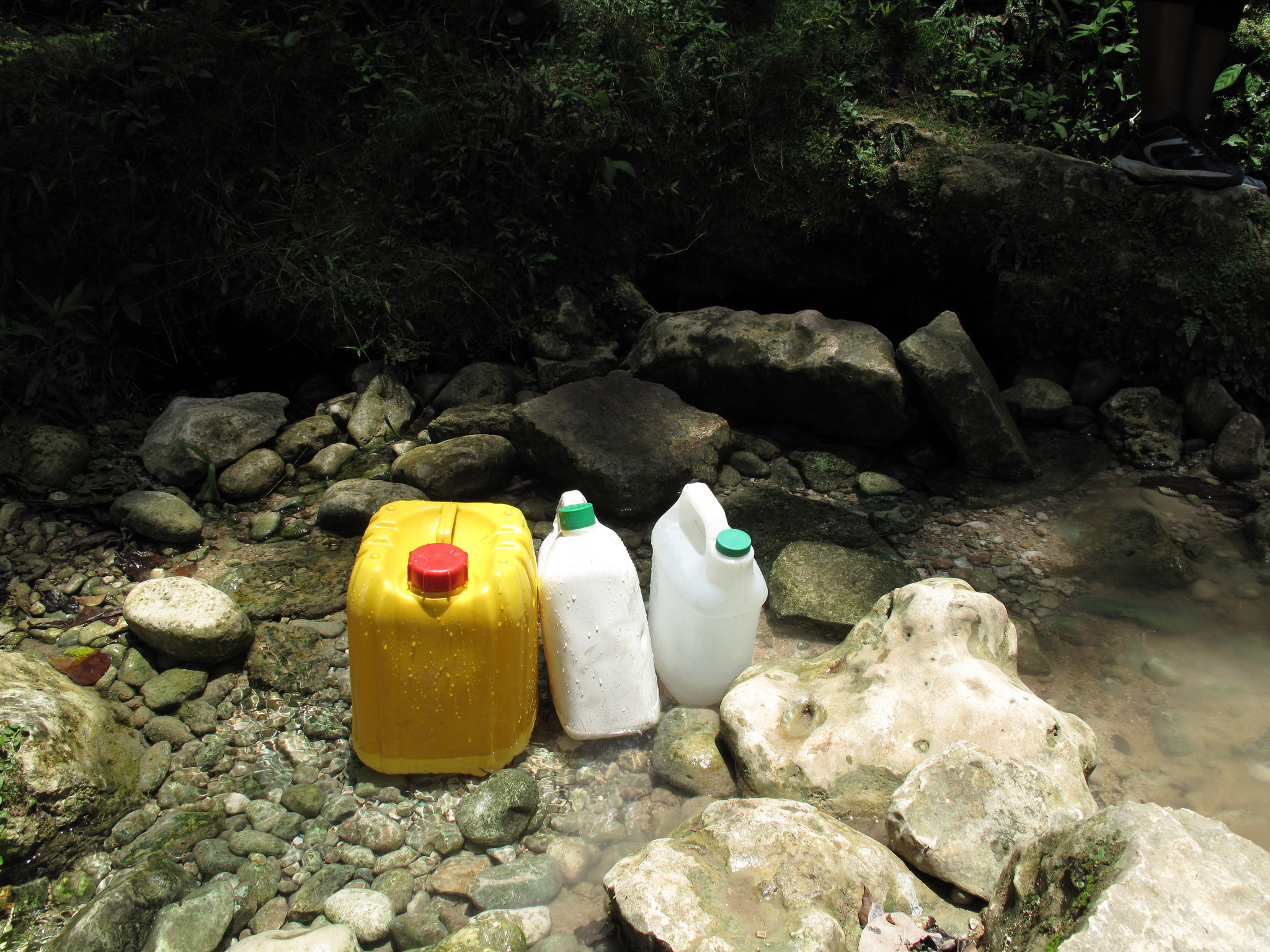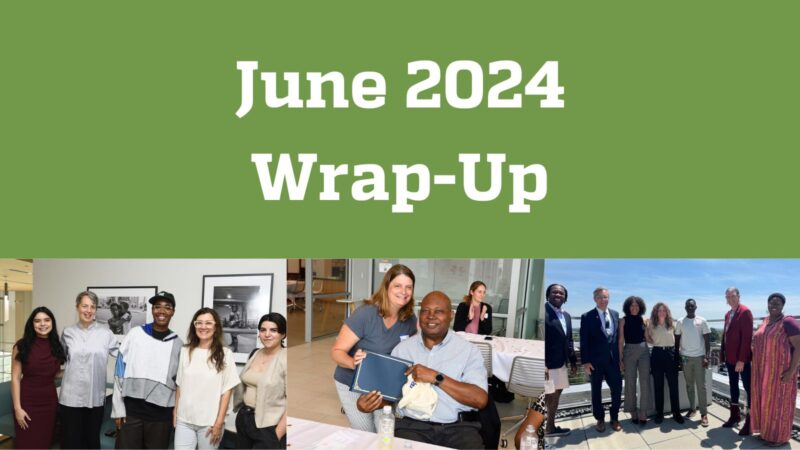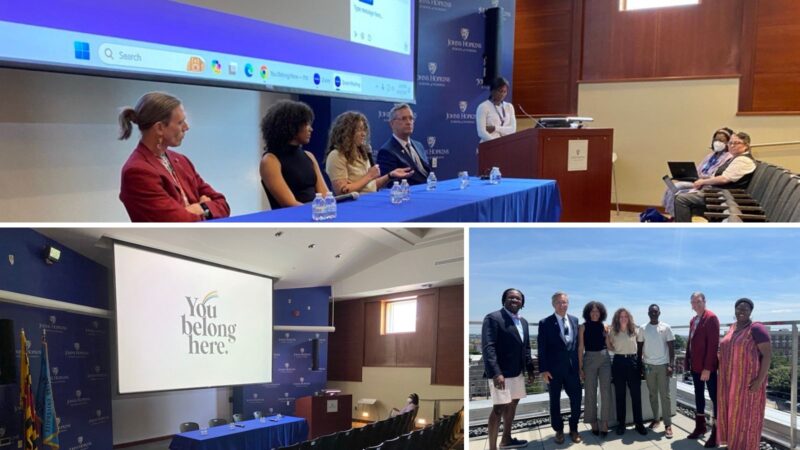In February 2016, Assistant Professor Diana Baptiste and Teresa Pfaff with the Center for Global Initiatives, along with multidisciplinary team members from the Johns Hopkins Bloomberg School of Public Health (JHBSPH), faculty member Pablo Yori and Elli Leonstini embarked on a new research pilot project to explore water, sanitation and hygiene practices in Gatineau, Haiti and their impact on the health of the community. In an increasingly interdependent global society with shifting health concerns, emerging diseases, and increasing health inequities, all nurses need the skills to address complex global health challenges. Embracing the School’s core values, faculty, staff and students have taken part in a myriad of global health opportunities spanning education, practice, research and policy.
Haiti is the poorest country in the Western Hemisphere. Located in the Western Caribbean, Haiti is populated by more than 10 million people, sharing the island of Hispaniola with the Dominican Republic. More than 75% of Haitian residents are living on less than two dollars a day and almost 56% on less than one dollar a day. It is no secret that Haitians have limited access to resources such as health care, food, and clean water. The country lacks infrastructure and is highly dependent on non-governmental organizations (NGOs) for public health, schools, and roads.
Throughout the past decade the Johns Hopkins School of Nursing (JHSON) has maintained collaborations with several NGOs in Haiti, offering a wide range of services with educational opportunities for students to address social, economic, and political factors affecting health and health systems services such as primary care, emergency medicine, and health education. This new project is sponsored through the Global Established Multidisciplinary Sites (GEMS) grant from The Johns Hopkins University Centers or Global Health. The GEM sites were created to emphasize the multidisciplinary nature of global health problems and the need to work within interdisciplinary teams to solve complex problems together. This multidisciplinary approach builds on established relationships between the JHSON with one of our long time NGO collaborators, Friends for Health in Haiti (FHH). Functioning since 2006 and lead by Dr. Catherine Wolfe and Cherlie Severe, RN the goal of the FHH has been to protect the health of local community members by strengthening and expanding the capacity. One of the approaches employed has been FHH partnership with community members through the Sanitation Community Development Project to build capacity to establish clean, potable water solutions.
Our multidisciplinary team, consisting of faculty and students from JHSON, JHBSPH and JHU Water Institute, have been working collaboratively with FHH and community members to address two critical components to community health; sanitation and sustainable water. Building off of the work that FHH has been doing with their Sanitation Community Development Project, our team has begun a three pronged approach of literature review, data collection through house hold surveys and focus group discussions to better understand some of the barriers and opportunities for sustainable water, sanitation and hygiene projects to improve health.
The GEMS team traveled to Jérèmie in May and August of 2016 to complete in initial assessment of the community resources and infrastructure. The team visited more than 14 water sources located along the rural mountains of Gatineau villages called the Grand Ansè. Water sources in this area are scant, with community members walking anywhere from 15 minutes to one hour from their home to retrieve water. During the assessment, we rapidly discovered how much contributes to water and sanitation in Gatineau including; common (and uncommon) water treatment methods, and sanitation and hygiene beliefs and practices among Haitians living in these rural villages. More than that, we learned that although living conditions were poor and resources limited; each place we visited, we were greeted with smiles, warm welcomes, a great desire to discuss opportunities and obstacles of community members and even split coconuts for rehydration after long hikes.
We are excited to continue to explore some of the themes we discovered during our initial assessment and we look forward to a sustained relationship and partnership with Dr. Wolfe, Nurse Cherlie and the FHH team. Our team will travel to Gatineau this winter and will start conducting data collection and testing of water sources. Stay tuned, as our team will travel to Gatineau this winter and will start conducting data collection and testing of water sources!
ABOUT THE AUTHORS
Diana-Lynn Baptiste, DNP, MSN, RN, is an assistant professor at the Johns Hopkins School of Nursing and Teresa Pfaff, MPH, MSN, RN, APHN-BC, CPH, is the Manager at JHSON Center for Global Initiatives.




